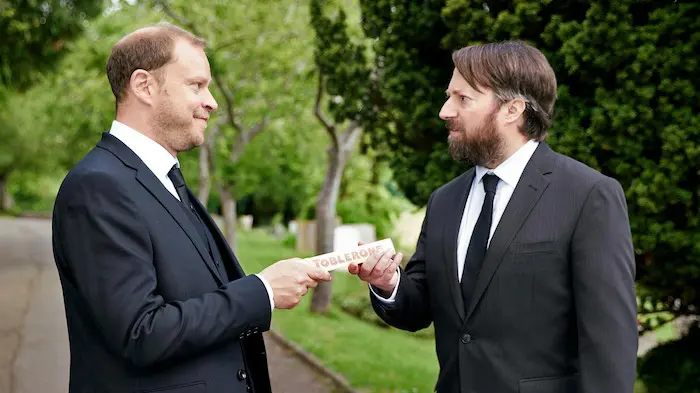Channel 4’s ‘Back’ provides a lesson to all family business shareholders of what can go wrong if the majority shareholder dies without making it clear who should take up the reins of the business.
Although veiled in some light-hearted comedy, the series sheds light on the common issues facing family businesses and Duncan James from law firm Shakespeare Martineau provides some advice on the legal aspects of succession planning.
The Channel 4 comedy series starts when foster brother Andrew arrives on the scene just as Stephen is preparing to take over the family business following their father’s death. Andrew attempts to charm other family members to secure a more dominant role within the firm but when the lines between business and family are blurred, what can be done to protect the interests of all parties and keep the business functioning after the death of a majority shareholder?
This is a stark reminder of the importance of writing a clear will. Inherited wealth is increasingly being relied on as a major means of financial support for many people and this is increasing the likelihood of posthumous disputes amongst family members, particularly when a successful business makes up part of the estate.
Making clear and concise stipulations within a will is the best starting point to ensure that the wishes of the deceased are honoured.
However, creating a will is about more than just amassed wealth. It equates to passing on a family legacy that looks after the circumstantial and financial interests of children, guardians or loved ones. A will should be reviewed and updated at regular intervals or significant milestones to ensure all documentation is kept up to date.
Becoming familiar with the will writing process at an early age is therefore advisable. This helps ensure individuals are thinking about the transfer of assets and preferences at the earliest stage possible.
Waiting until later in life to start the process from scratch can make it more complicated in terms of splitting funds and assets that by this time may incorporate multiple elements.
From a business perspective, a family constitution should be formed, which can act in a similar manner to a prenuptial agreement. This defines roles and responsibilities of individual family members and sets out the desired business path clearly.
Laying out rules transparently to all family members involved in a business can pay dividends in the long run, particularly if a dispute does arise.
Often, less is more and creating a family constitution does not need to be an arduous task. In fact, three simple documents can help family businesses to keep communications open and clear – a tax plan, including wills and succession planning, a shareholder agreement and a business plan.
In doing so, should anything unexpected happen to a majority shareholder, it is clear to the entire family who should take responsibility, and which direction the business should be heading in.
With a robust family constitution in place, any disputes that may arise can be handled and hopefully resolved based on the majority shareholder’s wishes. This often avoids the business moving in a direction that benefits only one individual, but rather keeps the interests of the business at the core of decision making.
To avoid gaps in operations, business owners should make sure they are communicating regularly with potential successors about future intentions and exit options. If an individual’s circumstances change, due to a birth, death, marriage or divorce, this could trigger a rethink and it is important that the family business owner is aware of this and can ensure provisions are in place to cater for such changes.
To minimise any potential disruption, business owners should consider taking a preventative approach by tying in key family members or other highly-valued managers. They could also take steps to bolster the management team by bringing in a ‘business mentor’ or non-executive director where necessary.
One of the best ways to tie in potential successors and keep them motivated is to put in place a rewarding pay and remuneration package.
This should comprise an option to assume ownership of a stake in the business, or to assume control of part of the business, once key milestones are achieved. If preferred, the exiting business owner can ring fence existing assets by structuring incentives to ensure the employee only gets a share of any increased wealth.
It is most important that business owners keep an open mind and try to be as realistic as possible about the capabilities of the next generation. It may be tempting to think that a particular family member is ready for a leadership challenge however, it is far better to take a planned approach to succession; phasing the transition to allow time for the relevant people to grow into their new roles.


